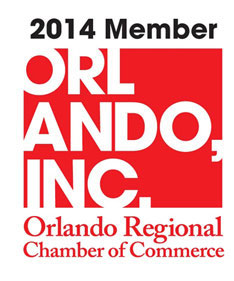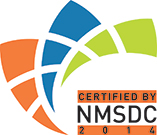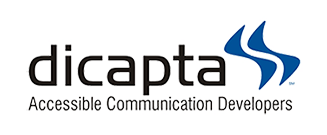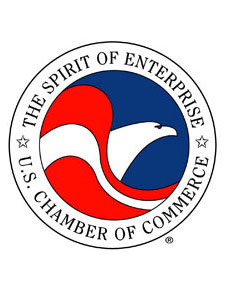Recently, Orlando Sentinel business writer Paul Brinkmann visited our call center in Kissimmee, then wrote a feature about us. This is quite the honor!
The serene quiet at the ASL Services call center in Kissimmee does not reflect the amount of activity going on. Employees are taking calls, answering questions and relaying important messages — using their hands and technology such as Skype and FaceTime.
ASL Services is growing rapidly, providing sign-language interpreters for companies including Disney and Apple stores as new technology allows deaf people immediate and constant access to a sign language interpreter. “Our client base has grown, and volume of work has grown too,” said Angela Roth, CEO and owner of ASL Services. “Just last year, we brought on over 25 new interpreters on our payroll, and five support staff.”
At the call center in Kissimmee, deaf people who use sign language can connect with an interpreter over a video connection. After that, the interpreter places another call — to order a pizza, make a doctor appointment or communicate with any hearing individual — most of whom do not understand sign language.
The company also dispatches interpreters to respond quickly to hospitals, courtrooms, businesses and public agencies where a deaf person needs to communicate with hearing people.
“Let’s say someone is at a hospital and they need interpretive services. We get a call and we send someone out to help them,” Roth said. “We ask them, ‘Do you want a male or female, generic or specific skills?’ And we dispatch an interpreter.”
“Years ago, a deaf person might have to wait an entire day for an interpreter to arrive,” Roth added. “We now have a one-hour commitment.” The company now has about 129 payroll employees, 76 of whom are in the Orlando area. It also uses about 500 contracted, freelance interpreters across the United States.
Statistics on sign language are difficult to obtain, partly because most statistics for hearing problems don’t distinguish between deaf people and people with hearing loss. The National Institute of Health estimates that one in eight Americans — 13 percent — age 12 or older has hearing loss in both ears.
Roth, who developed a reputation for interpreting music and theater performances, founded the company in Kissimmee in 1993. She also has provided sign language to several American presidents, including inaugural balls and the 1996 Democratic National Convention. Even when she’s speaking to a hearing audience, Roth often gestures with her hands — not sign language but animated and visual.
The clientele for ASL is diverse. There are a few remaining World War II veterans who suffered hearing loss when bombs exploded near them. Then there’s the “rubella bulge,” which means people born deaf during a rubella outbreak in the mid-1960s. Recent assignments for interpreters included a deaf American student studying in Israel and another who was studying in Japan. In those examples, students connect to an interpreter in the U.S. using a video connection who helps them understand what happens in the foreign classroom.
Read the whole article here: Sign-language call center grows quietly in Kissimmee
 Testimonials
Testimonials









